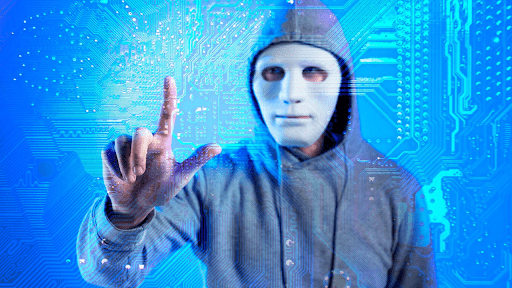What if your company’s digital infrastructure were compromised overnight? Cybercriminals could steal or encode sensitive data, financial records, and intellectual property. This isn’t hypothetical—it’s happening worldwide. According to the “Global Risks Report 2024” by the World Economic Forum, cybersecurity will remain a critical concern in 2025, with attacks targeting essential services like financial systems and communication networks. Cybercriminals are now part of sophisticated, well-funded networks attacking businesses, governments, and individuals. Critical sectors like banking, healthcare, and telecommunications are prime targets, risking widespread disruption.
IT security is no longer optional. Protecting digital assets is vital for survival in today’s interconnected world. Leaving systems unprotected is like leaving valuables exposed in a high-risk area. So, what does IT security mean, and why should it matter to you? Let’s explore why safeguarding your digital presence is a top priority.
Defining IT Security: More Than Just Protection
What is IT security? At its core, it’s not just about barriers—it’s about creating a strong shield to protect your data, systems, and networks. It’s a smart, layered plan to stop unauthorized access, misuse, or damage. Think of it as the ultimate protector for your business’s critical operations.
Here’s the twist: IT security isn’t just for the tech team. It’s a key business function that involves everyone, from the CEO to the intern. Keeping your digital assets safe is a shared responsibility.
What Does IT Security Really Mean?
IT security is built on four key pillars:
- Guarding Sensitive Data: Protect customer info and internal communications.
- Ensuring Integrity: Prevent data tampering and ensure accuracy.
- Maintaining Confidentiality: Keep information private and accessible only to authorized users.
- Guaranteeing Availability: Ensure systems and data are always accessible.
Why IT Security is a Mindset, Not Just a Task
IT security is proactive, layered, and collaborative:
- Proactive: Anticipate threats before they strike.
- Layered: Use multiple layers of protection.
- Collaborative: Everyone plays a role in safeguarding the organization.
By embracing this mindset, IT security becomes a strategic advantage, not just a necessity.
The Core Pillars of IT Security: Protecting What Matters Most
These four pillars form the foundation of a robust IT security strategy. Each addresses a critical area of vulnerability. Together, they create a comprehensive defense system to safeguard digital assets.
1. Network Security: Shielding Your Networks from Breaches
Network security keeps communication channels safe. Tools like firewalls and intrusion detection systems block unauthorized access. Remember the Equifax breach? Hackers exploited a single vulnerability, exposing 147 million people’s data. A secure network prevents such disasters.
Did you know? Over 60% of breaches involve exploiting unpatched vulnerabilities in networks.
2. Application Security: Ensuring Apps Are Safe
Apps are gateways to sensitive data, but poorly coded software can invite attacks. SQL injections and malware exploits are common risks. Regular updates and rigorous testing keep apps secure. Patching isn’t optional, it’s essential.
3. Data Security: Safeguarding Sensitive Information
Data breaches cost businesses billions every year. Encryption and access controls protect customer and company data. Ransomware attacks, which encrypt files and demand payment, are rising fast.
Customer data is a prime target. In fact, according to Javelin Strategy & Research, identity fraud losses hit $23 billion in 2023. Secure data storage isn’t just smart—it’s critical.
4. Endpoint Security: Protecting Devices and Endpoints
Remote work has made laptops, phones, and tablets prime targets. Endpoint security ensures these devices follow strict protocols. Without it, attackers can use them as entry points into your network.
Keep endpoints updated and monitored to stay ahead.
What Are the Biggest IT Security Threats in 2025?
As cyber threats evolve, staying ahead of the curve is crucial. Here are some of the top threats to IT security we’ll face in 2025:
1. Ransomware: A Growing Menace
Imagine losing access to all your business data unless you pay a ransom. Many companies face this reality today as ransomware attacks become more frequent and sophisticated.
Tip: Back up your data regularly and use anti-ransomware tools.
2. Phishing and Social Engineering: Deceptive Tactics
Cybercriminals don’t always rely on brute force—they trick you into handing over access. Fake emails, texts, and websites mimic legitimate sources to steal credentials.
Tip: Train employees to recognize phishing attempts and verify sender identities.
IT Security vs Cybersecurity: Unpacking the Difference
Understanding the difference between IT security and cybersecurity is crucial for creating effective defense strategies. Here’s a clear breakdown:
| Aspect | IT Security | Cybersecurity |
|---|---|---|
| Scope | Broad; includes physical and digital assets | Focused on cyber-based threats |
| Examples | Firewalls, biometric locks, access cards | Anti-malware software, DDoS mitigation |
| Key Focus | Protecting systems, networks, and data | Defending against Internet-based attacks |
| Relationship | Encompasses cybersecurity | A subset of IT security |
This table highlights how IT security and cybersecurity differ yet work together to safeguard modern organizations. While IT security provides an overarching shield, cybersecurity zeroes in on online dangers. Both are essential for a robust defense strategy.
The Critical Role of IT Security for Modern Businesses
When it comes to data, your business reputation, customer trust, and financial stability are all on the line.
According to IBM’s Cost of a Data Breach Report 2024, the global average data breach cost has reached a staggering $4.88 million —a 10% increase from the previous year and the highest total ever recorded.
What Does This Mean for Businesses?
- High Costs of Breaches: At nearly $5 million per incident, organizations cannot afford to ignore IT security risks. A single breach can cripple finances and damage long-term viability.
- Protecting Reputation and Trust: Customers expect their data to be secure. Implementing robust IT security and information security measures can lead to lost trust, damaged brand loyalty, and reduced revenue.
- Business Continuity at Risk: Without strong IT security, systems and data are vulnerable to attacks that disrupt operations, leading to costly downtime and lost productivity.
How IT Security Makes a Difference
Investing in IT security is no longer optional—it’s a critical business decision. Here’s how IT security directly impacts key areas of your organization:
| Aspect | Without IT Security | With Strong IT Security |
|---|---|---|
| Costs | Breaches cost $4.88M in fines and losses. | Save $2.22M with AI tools; reduced costs. |
| Trust | Lost customer trust; switch to competitors. | Secure data builds loyalty and credibility. |
| Operations | Attacks cause downtime and lost productivity. | Systems stay operational; minimal disruption. |
| Compliance | Fines for violating GDPR, HIPAA, etc. | Avoid penalties, meet regulatory standards. |
| Reputation | Damaged brand; long-term setbacks. | Seen as a reliable, stronger market position. |
IT security protects finances, operations, and reputation—ensuring business success in a digital world.
Best Practices for Robust IT Security
Protecting your digital assets requires a proactive approach. Here are actionable tips to mitigate IT security risks and strengthen your defenses:
- Use Strong, Unique Passwords: Weak passwords are a leading cause of breaches. A password manager ensures every account has a unique, complex password—reducing the risk of unauthorized access.
- Enable Multi-Factor Authentication (MFA): MFA adds an extra layer of protection. Even if attackers steal your password, they can’t get in without the second verification step. It’s a simple yet powerful way to address IT security risks.
- Conduct Regular Security Audits: Routine audits help identify vulnerabilities before cybercriminals exploit them. Think of it as staying one step ahead in the ever-evolving landscape of IT security definition.
- Leverage AI-Driven Threat Detection: For larger organizations, integrating advanced tools like AI-driven threat detection systems is becoming essential. These systems analyze patterns and predict attacks, offering a smarter way to combat modern threats.
By adopting these practices, individuals and businesses can build a resilient defense strategy that aligns with the true IT security definition: safeguarding data, systems, and networks from harm.
Why IT Security Isn’t Just for IT Professionals
IT security isn’t just the responsibility of the IT department—it’s a shared obligation that involves every individual in an organization. But how can employees and leaders effectively collaborate to strengthen security? From employees to leaders, everyone plays a critical role in mitigating IT security risks and protecting digital systems. Here’s how each group contributes:
The Role of Employees
Employees are often the first line of defense against cyber threats. Their actions can either strengthen or weaken an organization’s security posture.
- Understand Basic IT Security Principles: Recognizing phishing emails, avoiding suspicious links, and reporting unusual activity are essential practices.
- Follow Security Policies: Adhering to company guidelines ensures consistency in minimizing IT security risks.
The Role of Leaders and Managers
Leaders set the tone for an organization’s security culture. Without their commitment, even the best tools and strategies can fail.
- Set Clear Policies: Establish guidelines defining acceptable technology use and data handling.
- Allocate Resources: Invest in training, tools, and personnel to build a robust security framework.
Real-World Examples of Human Error
Human error is one of the leading causes of security breaches. Below are actual, real-world examples where mistakes led to major incidents:
| Organization | Cause of Breach | Impact |
|---|---|---|
| Target (2013) | A third-party HVAC vendor’s credentials were stolen via phishing. | 40 million credit card records were compromised. |
| Equifax (2017) | Failure to patch a known vulnerability in Apache Struts software. | 147 million people had their personal data exposed. |
| Twitter (2020) | Employees fell victim to a coordinated phishing attack. | High-profile accounts (e.g., Barack Obama, Elon Musk) were hacked, resulting in a Bitcoin scam. |
| Ubiquiti (2021) | An employee’s password was leaked, leading to unauthorized access. | $46 million stolen from customer accounts. |
Key Takeaways:
- Employees: Must stay vigilant and informed about IT security risks to avoid becoming accidental gateways for attackers.
- Leaders/Managers: Should prioritize security by fostering a culture of accountability and investing in the right tools and training.
IT Security Career Opportunities: Are You Ready for the Future?
The demand for skilled professionals in IT security and information security is skyrocketing. With cyber threats on the rise, the global cybersecurity workforce shortage is projected to reach 3.5 million by 2025. This gap presents a massive opportunity for individuals looking to enter this dynamic field.
To thrive in IT security, you’ll need specialized skills such as:
- Ethical Hacking: Identifying vulnerabilities before attackers do.
- Penetration Testing: Simulating attacks to strengthen defenses.
- Network Defense: Protecting systems and data from unauthorized access.
Understanding the IT security definition —protecting digital assets, systems, and networks—is key to success. Organizations need experts who can bridge IT security and information security to safeguard data and ensure compliance.
Ready to upskill? Certifications like CompTIA Security+, CEH, and CISSP can boost your career. CCI Training Center offers hands-on training to prepare you for modern threats. Explore our IT security courses today.
Conclusion: The Growing Importance of IT Security
IT security is no longer just a technical concern—it’s a cornerstone of modern business and digital life. From protecting sensitive data to ensuring business continuity, robust IT security safeguards against costly breaches and reputational damage. Understanding what information technology security and its critical role is essential in today’s threat landscape.
Ready to deepen your knowledge? Explore CCI Training Center’s resources on What Is Information Technology (IT) and the Role of IT in the Modern Organization. Take the next step toward a rewarding career by enrolling in our IT security programs today!
Frequently Asked Questions (FAQs)
1. What is IT security?
IT security refers to the practice of protecting digital systems, networks, and data from unauthorized access, misuse, or damage. It ensures the confidentiality, integrity, and availability of information.
2. Why is IT security important for businesses?
IT security safeguards sensitive data, prevents financial losses, and maintains customer trust. A single breach can cost millions and damage a company’s reputation irreparably.
3. What are the biggest threats to IT security?
Common threats include ransomware, phishing attacks, insider errors, and unpatched software vulnerabilities. Staying informed and proactive is key to mitigating these risks.
4. How can I start a career in IT security?
Begin by earning certifications like CompTIA Security+ or CEH. CCI Training Center offers hands-on programs to help you gain the skills needed for this high-demand field. Explore our IT courses today.
5. What’s the difference between IT security and cybersecurity?
IT security focuses on protecting all digital and physical assets, while cybersecurity specifically defends against online threats. Both are essential for a comprehensive defense strategy.














